Written by Alex Barrientos, Senior Editor, Classical Wisdom
The United States of America will turn 244 years old tomorrow.
From a historical perspective, the U.S. is quite a young nation. We’ve come a long way, and have much still to learn.
To those of you not already aware, it may come as no surprise to learn that the Founding Fathers of the U.S. were heavily influenced by the classics. They had a good understanding of ancient history, philosophy, and politics, and utilized that when crafting the founding documents of this country.
Yet, it was not only the wisdom of the ancients but their failings as well, that guided the ideas of this new generation of statesmen.
How could the thirteen independent states avoid falling into the turmoil, civil wars, and revolutions that plagued the ancient world?
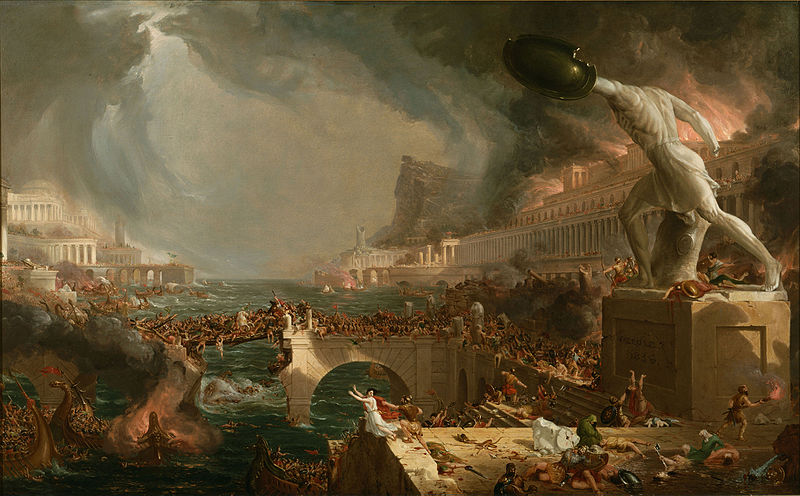
The Course of Empire: Destruction, Thomas Cole (1836).
That was the question on everyone’s mind. In fact, only 10 years after winning independence from Britain, a huge debate erupted in the U.S. over this exact question: the debate between the Federalists and Anti-Federalists.
During the summer of 1787, delegates from each of the thirteen states gathered in Philadelphia with the original intent of discussing and drafting improvements to the existing Articles of Confederation and Perpetual Union, which had been approved by the Second Continental Congress on November 15, 1777. However, not long into the convention many of the delegates came to believe that the goal should be much broader, namely the establishment of a new system of government.
Those in favor of this new system of government were known as the Federalists. They supported adopting a Constitution that would replace the Articles of Confederation, uniting the states under a strong, centralized government. Against them were the Anti-Federalists, who thought the proposed Constitution would consolidate too much power into the hands of the federal government, undermining the rights of the states and the people.
The Federalists won. On September 17th, 1787, the U.S. Constitution was signed by 38 of the 41 delegates present. Yet, the Constitution would not be binding until nine of the 13 states ratified it. Thus began the real battle between the Federalists and Anti-Federalists.
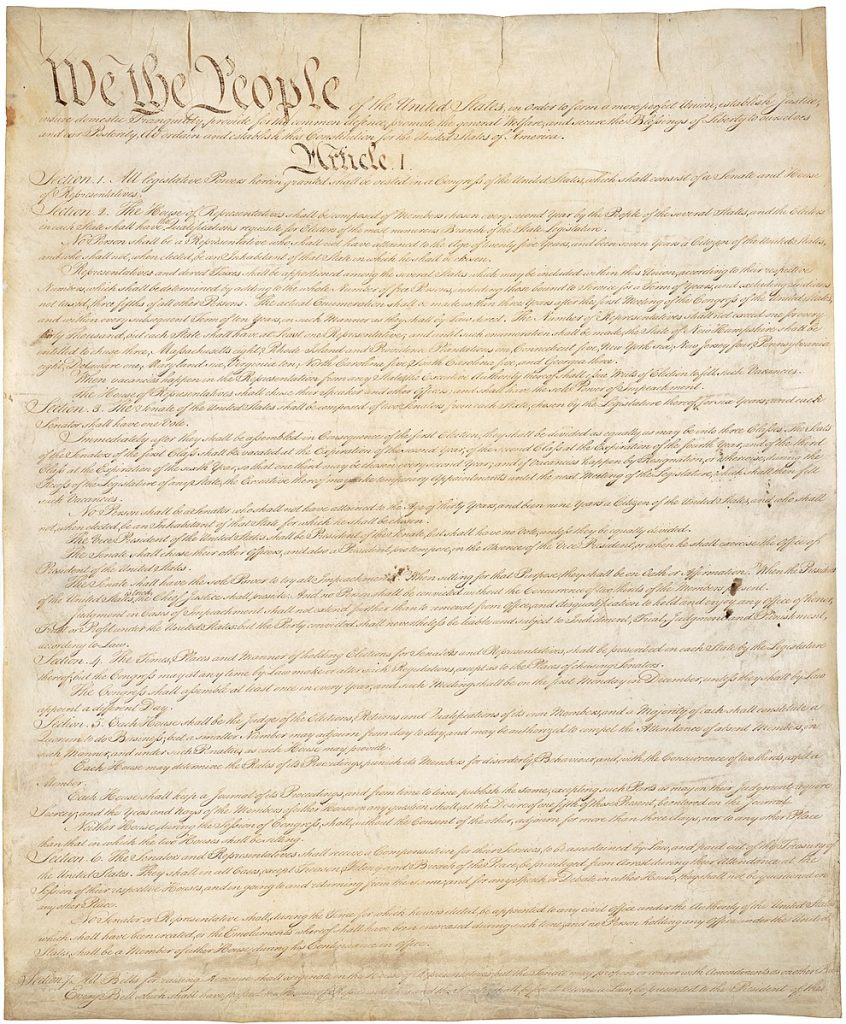
Page one of the original copy of the Constitution.
A series of articles and essays were written by each side, responding to one another’s criticisms and putting their best arguments forward as to why their vision of the U.S. was the better one. This series of essays would come to be known as the Federalist Papers and the Anti-Federalist Papers.
The Federalists were led by Alexander Hamilton, James Madison, and John Jay, all writing under the pseudonym “Publius”—Roman for “the people,” but also a reference to Publius Valerius Publicola, one of the first republican statesmen of ancient Rome.
While we know who the advocates of Anti-Federalism were, it is much less clear who wrote what when it comes to the Anti-Federalist Papers. The Anti-Federalists were led by Thomas Jefferson, Patrick Henry, George Mason, and James Monroe, just to name a few. As for the authors of the Anti-Federalist Papers, they wrote under the pseudonyms of Cato, Brutus, Centinel, and the Federal Farmer. Though there is no agreement, it is thought that the authors were George Clinton, Melancton Smith, Samuel Bryan, and Richard Henry Lee, respectively.
Not only did both sides use pseudonyms referring to famous statesmen of the ancient world, but they often made their arguments by appealing to the history of the ancient world. Though I could briefly summarize their arguments, I think it best to let each side speak for themselves.
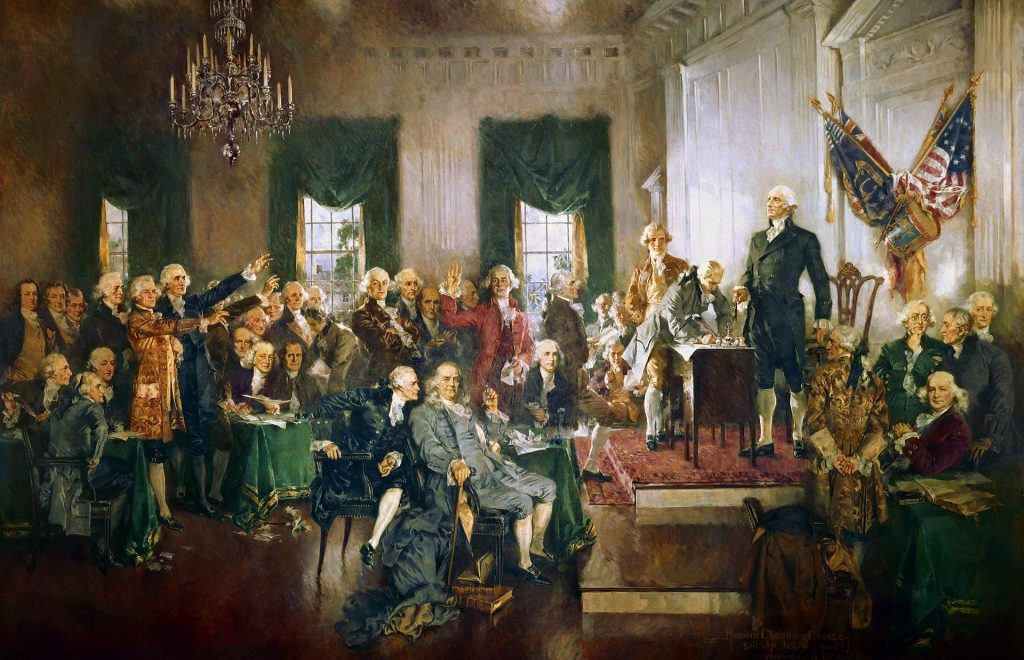
Scene at the Signing of the Constitution of the United States, by Howard Chandler Christy (1940).
The Federalists: United we stand, divided we fall
“Leave America divided into thirteen or, if you please, into three or four independent governments—what armies could they raise and pay—what fleets could they ever hope to have? If one was attacked, would the others fly to its succor, and spend their blood and money in its defense? Would there be no danger of their being flattered into neutrality by its specious promises, or seduced by a too great fondness for peace to decline hazarding their tranquillity and present safety for the sake of neighbors, of whom perhaps they have been jealous, and whose importance they are content to see diminished? Although such conduct would not be wise, it would, nevertheless, be natural. The history of the states of Greece, and of other countries, abounds with such instances, and it is not improbable that what has so often happened would, under similar circumstances, happen again.” – Federalist No. 4“A FIRM Union will be of the utmost moment to the peace and liberty of the States, as a barrier against domestic faction and insurrection. It is impossible to read the history of the petty republics of Greece and Italy without feeling sensations of horror and disgust at the distractions with which they were continually agitated, and at the rapid succession of revolutions by which they were kept in a state of perpetual vibration between the extremes of tyranny and anarchy.” – Federalist No. 9“Had Greece, says a judicious observer on her fate, been united by a stricter confederation, and persevered in her union, she would never have worn the chains of Macedon; and might have proved a barrier to the vast projects of Rome.” – Federalist No. 18
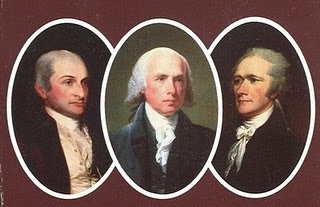
From left to right: John Jay, James Madison, Alexander Hamilton
The Anti-Federalists: The bigger the government, the bigger the problem
“In large republics, the public good is sacrificed to a thousand views, in a small one, the interest of the public is easily perceived, better understood, and more within the reach of every citizen; abuses have a less extent, and of course are less protected…. the duration of the republic of Sparta was owing to its having continued with the same extent of territory after all its wars; and that the ambition of Athens and Lacedaemon to command and direct the union, lost them their liberties, and gave them a monarchy.” – Antifederalist No. 14“All human authority, however organized, must have confined limits, or insolence and oppression will prove the offspring of its grandeur, and the difficulty or rather impossibility of escape prevents resistance. Gibbon relates that some Roman Knights who had offended government in Rome were taken up in Asia, in a very few days after. It was the extensive territory of the Roman republic that produced a Sylla, a Marius, a Caligula, a Nero, and an Elagabalus. In small independent States contiguous to each other, the people run away and leave despotism to reek its vengeance on itself; and thus it is that moderation becomes with them, the law of self-preservation.” – Antifederalist No. 3“Where the people are free there can be no great contrast or distinction among honest citizens in or out of office. In proportion as the people lose their freedom, every gradation of distinction, between the Governors and governed obtains, until the former become masters, and the latter become slaves. In all governments virtue will command reverence. The divine Cato knew every Roman citizen by name, and never assumed any preeminence; yet Cato found, and his memory will find, respect and reverence in the bosoms of mankind, until this world returns into that nothing, from whence Omnipotence called it. That the people are not at present disposed for, and are actually incapable of, governments of simplicity and equal rights, I can no longer doubt. But whose fault is it? We make them bad, by bad governments, and then abuse and despise them for being so.” – Antifederalist No. 3
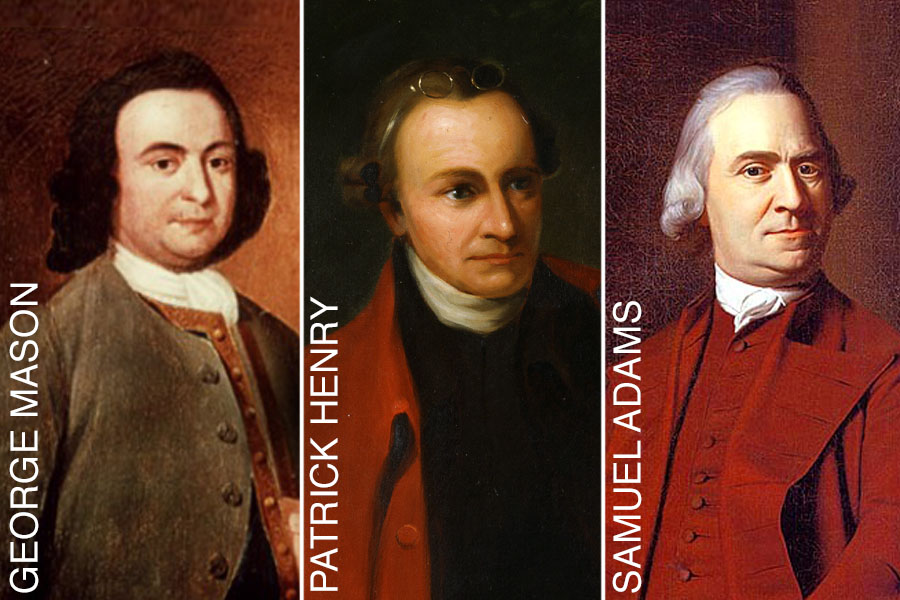
Three of the Anti-Federalists.
An Ancient Conflict
Do these issues and arguments seem familiar to ones you here today? Well, they should! As Jefferson knew, this disagreement between the Federalists and Anti-Federalists was nothing new in the history of the world. There have always been those who put their faith in the people, and those who have distrusted them—the Anti-Federalist’s being the former, and the Federalists the latter.
“Men have differed in opinion, and been divided into parties by these opinions, from the first origin of societies; and in all governments where they have been permitted freely to think and to speak. The same political parties which now agitate the US. have existed thro’ all time. Whether the power of the people, or that of the ἄριςτοι [ancient greek for “aristocracy” or “nobility”] should prevail, were questions which kept the states of Greece and Rome in eternal convulsions; as they now schismatize every people whose minds and mouths are not shut up by the gag of a despot. And in fact the terms of whig and tory belong to natural, as well as to civil history. They denote the temper and constitution of mind of different individuals.” – Jefferson to John Adams, June 27th, 1813“Men by their constitutions are naturally divided into two parties. 1. Those who fear and distrust the people, and wish to draw all powers from them into the hands of the higher classes. 2dly Those who identify themselves with the people, have confidence in them cherish and consider them as the most honest & safe, altho’ not the most wise depository of the public interests. In every country these two parties exist, and in every one where they are free to think, speak, and write, they will declare themselves. Call them therefore liberals and serviles, Jacobins and Ultras, whigs and tories, republicans and federalists, aristocrats and democrats or by whatever name you please; they are the same parties still and pursue the same object. The last appellation of aristocrats and democrats is the true one expressing the essence of all.” – Jefferson to Henry Lee, August 10th, 1824
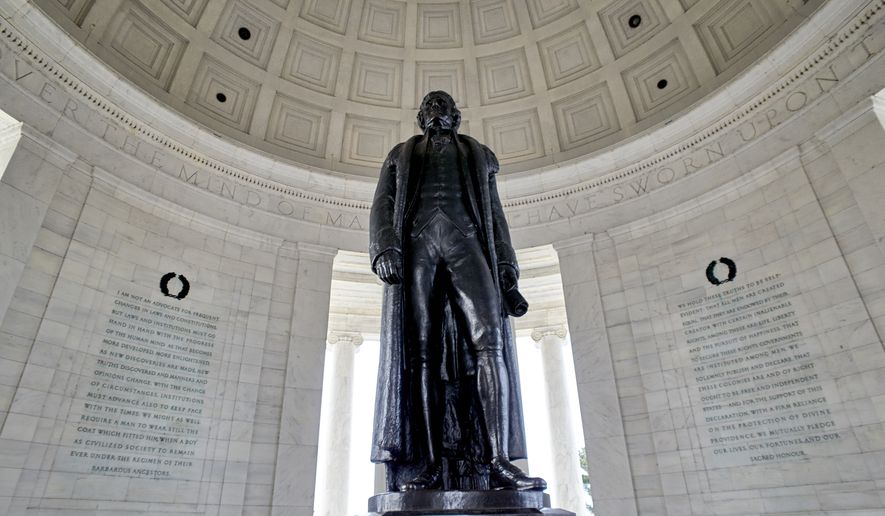
Statue of Thomas Jefferson at the Jefferson Memorial in Washington, D.C.
Because the questions we struggle with today and which set us apart from one another are the same as those that faced the ancient Greeks and Romans, there is no doubt that we have much to learn from their wisdom as well as their mistakes. The Founders were wise to look to the ruins of the past for lessons on how to build the future.
Though the struggle between the Federalists and Anti-Federalists culminated in the ratification of the Constitution and the ratification of the Bill of Rights, the struggle continues to this day—as it always has and always will.
There will always be those who, like Hamilton, are so distrustful of the people’s ability to self-govern that they think,
“Had every Athenian citizen been a Socrates, every Athenian assembly would still have been a mob.” – Federalist No. 55
And there will also always be those who, like Jefferson, question such distrust,
“Sometimes it is said that man can not be trusted with the government of himself. Can he, then, be trusted with the government of others? Or have we found angels in the forms of kings to govern him?” – Jefferson’s First Inaugural Address, March 4, 1801
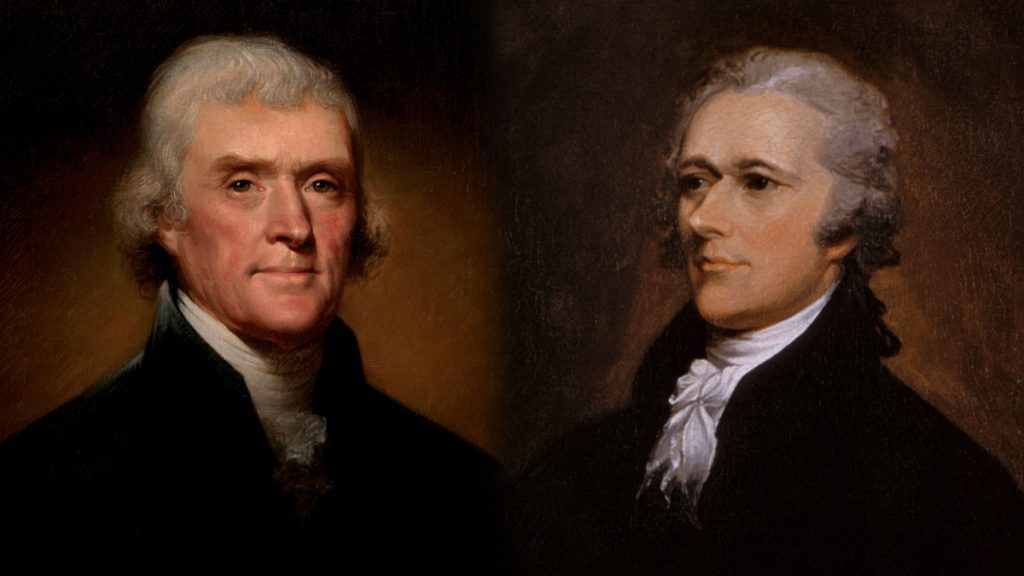
Jefferson (left) and Hamilton (right).
The verdict is not out on who was right. History will have to decide.
In the meantime, as we celebrate the 244th birthday of the U.S., let us celebrate the wisdom of the classics and the failures of those ancient peoples embroiled in the same conflicts we find ourselves in today. Without their failures, and without our own, we would have little to learn from.
Let us also celebrate the rights and freedoms we enjoy, but not at the expense of forgetting how many in this country still are unable to enjoy the full protection and guarantee of them. Rights and freedoms are not just to be enjoyed but to be continually fought and struggled for.
In the words of Jefferson,
“For ourselves, let the annual return of this day forever refresh our recollections of these rights and an undiminished devotion to them.”

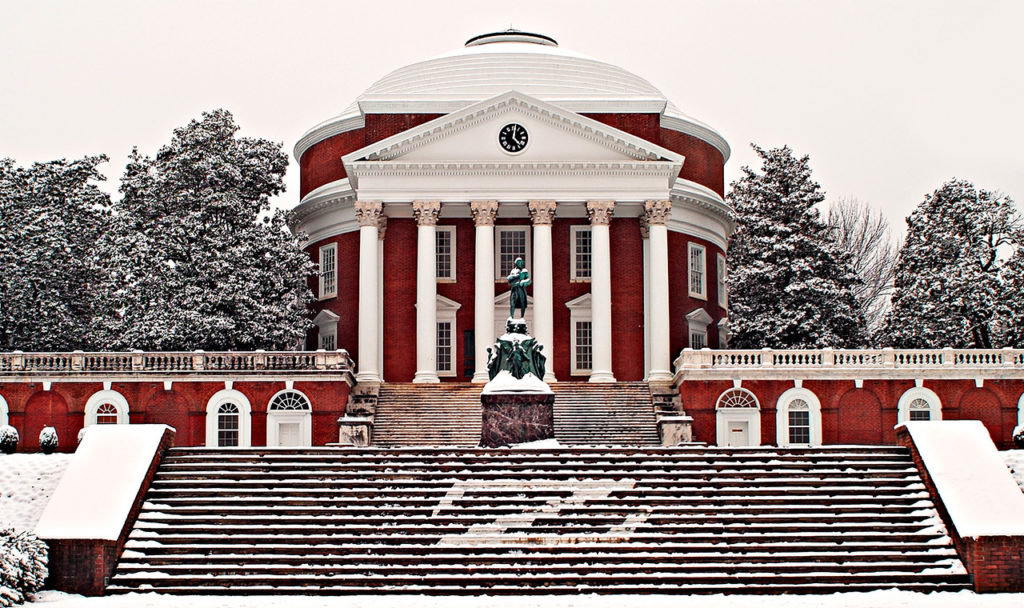








One comment
Through this wonderful site, I have learned much about the influence the classic thinkers and philosophers have in our present lives.
Thank you for this timely article. It reminds us all that by reflecting on the past and implementing its lessons into the present, man however slowly, draws closer to the great and ideal future we all hope for. Life, liberty, and the pursuit of happiness for ALL.
Happy 4th CW … Thanks for all the classical knowledge you guys share.
Our apologies, you must be logged in to post a comment.